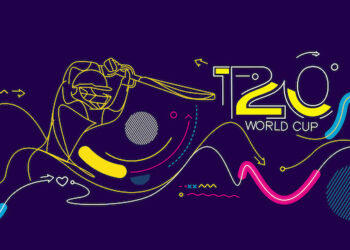“I love to see a young girl go out and grab the world by the lapels. Life’s a bitch. You’ve got to go out and kick ass.” – Maya Angelou
Gender inequality in the workplace, including the media, advertising and communications sector, remains rife in South Africa, as it does around the world. That doesn’t mean we should accept it as something inexorable we can’t change. Gender equality is at the core of human rights and is something we should all fight for, in whatever big or small ways we can.
Women are still paid less than men for doing the same work, and the glass ceiling is still thick. While South Africa does have a few women editors and agency leaders, they are still all too rare, and way out of sync with the much larger number of women entering the media and allied professions.
If I had to give some advice to my younger self or others starting out in their careers now, it would be this: Work hard and challenge yourself every day. Don’t wait for opportunity to knock; chase it down and catch it by the ankles! Your power will grow with your experience. If you’re a woman, you will need to work harder to earn your opportunities, so get going right away.
Also, the career ladder is an outdated idea. I like to think of a career more as a jungle gym – play a bit here, then a bit there, mastering the different equipment. It’s amazing how some experience on the swings might help you on the monkey bars of life. Very few people are lucky enough to be called to a vocation; the rest of us must experiment and play until we find our passions. If you work hard and try your best at whatever you do, your passions will eventually become apparent.
And more than anything, believe in yourself and don’t let others put you down.
A social, personal issue
Gender inequality is a societal issue, but of course a deeply personal one. Each of us, women and men, experiences it differently. What’s worth remembering is that culture is in a continuous state of creation and co-creation, and it is up to all of us to challenge and change discriminatory culture, wherever we are and however we can.
Not only is this the right thing to do, but it also makes good business sense. There’s a large body of research showing that teams that are diverse and inclusive in terms of gender (and in fact in all ways) are more productive, more innovative and more profitable.
Here are seven ways in which we can build better gender inclusivity in our industry.
- Employ more women in management positions
If you are a business leader, commit to improving gender equity at a management level. Build a strategy and implement it. It might not happen overnight, but change starts with identifying an issue and committing to addressing it. Do it right and you will reap rich human and financial returns.
- Create a mentorship programme for women in your organisation
Numerous studies have shown that formal and informal mentorship increases the likelihood of a woman going further in her career. Interestingly, a recent study on women in the public sector in South Africa found that this was true no matter the gender of the mentor. If you are in a position to mentor someone, offer to do so (or just do it informally). If you don’t have strong mentors yourself, seek them out.
- Create a strategy to hire young women as interns and junior staff
Before women can be in high-level positions, they need to start somewhere. Make it an imperative to hire a high number of young women at your agency, and ensure that they are adequately trained and supported.
- Give women platforms to share their ideas in the workplace, irrespective of their status
Women often find it harder to speak up in the workplace because they may not have the confidence or cultural capital to do so. Make it easy for them by building opportunities to share ideas and confidence on platforms where they feel safe to speak.
- Check your unconscious bias
Unconscious biases are assumptions or attitudes we may not be aware of that may reinforce stereotypes. Examples of unconscious bias around gender include thinking it’s okay to pay women less than men, or believing blonde women are stupid. Here’s a useful list of 19 types of unconscious bias against which to check your own attitudes.
- Speak up for gender equity
Make it clear in your company values statement that you treat all genders the same, so this is clear to everyone and so the company can be held accountable if this doesn’t happen. Call out sexist language or behaviour when you see it and deal with serious cases of discrimination decisively.
- Invest in girls’ education and development
Focus your B-BBEE budgets and mentoring programmes on funding the education and training of young girls, especially black girls, who are the most disadvantaged of all in South Africa. Expose girl children to career choices and opportunities they may not otherwise be aware of as often as you can. Create job-shadowing opportunities and ad hoc internship opportunities for girls.
Read our Women in The Media edition here.
Tara Turkington (@TaraTurk1 on Twitter) is the CEO of Flow Communications, one of South Africa’s leading independent agencies. About 70% of Flow’s staff are women, while the company’s management team is 80% female. Flow is a certified member of WEConnect International, a global association of majority women-owned businesses, and a member of thenetworkone, the world’s largest network of independent creative, media, public relations and marketing firms.














